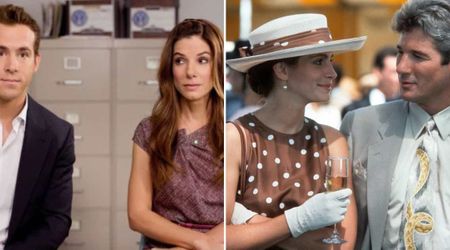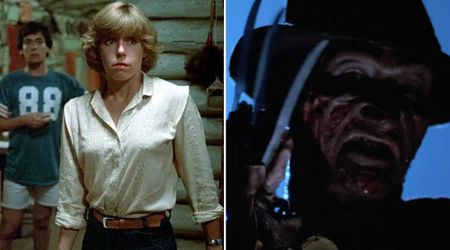'A View to Kill For': Lifetime's thriller drama about inheritance, abandonment, and vengeance

LOS ANGELES, CALIFORNIA: Lifetime's thriller drama titled 'A View To Kill For', starring Tiffany Montgomery, Samuel Whitten, Brittany Goodwin, and others, aired just a few hours ago, and the story of the film is sufficiently intriguing to keep the audience observing until the very end of the climax.
'A View to Kill For,' directed by Brittany Underwood and written by Rosy Deacon, follows Molly, who inherits an expensive property in a posh area from her estranged father, who dies of a heart attack. Molly, who is skeptical at first about the move and accepting a large chunk of money from a father she never met, is encouraged by her husband's willingness to embrace and accept the change, after which everyone moves into the house, but it is clear from the second they step inside that they weren't meant to be there. They are met with strange mishappenings throughout, which makes Molly question everything, including her father's entanglement with people who would have wanted him gone.
READ MORE
‘A Nurse to Die For’ Review: Lifetime thriller's predictability fails to leave lasting impression
Who stars in ‘Her Fiance’s Double Life’? Meet the cast of Lifetime’s thriller
'A View to Kill For' struggles with an emotional connect
If Lifetime movies have achieved anything, it is a track record for having fascinating and terrifying plot lines, which is exactly what 'A View To A Kill For' was designed to prove. The film is laid out in such a way that the viewer is made aware from the start that the movie is more than a typical drama film, but they must continue watching through the whole thing to find out what it is that they are looking for.
It is unusual for a family to inherit a luxurious home in a wealthy area from an estranged parent and be welcomed by everyone in the neighborhood. Rosy Deacon's script illustrates Molly and her family's challenges to fit in in the neighborhood, particularly as most of the residents are unwilling to accept them as part of their social group. The strange and scary mishappenings that take place throughout the movie leave the audience unsure of why someone would go to such lengths to scare someone they barely know.
The disappointing aspect of the film is that, while the setting and story are captivating, the acting falls short, as the audience might never be able to connect with the actors on-screen because they lack sentimental ability, whether it's fear, anger, jealousy, or happiness. There aren't any signs of emotion in the actors' appearances, which is one of the explanations for why the audience may fail to connect with the film and wish to skip it.
View this post on Instagram
Abandonment does not always necessitate vengeance
If you've managed to sit through the film because you're now invested and interested in what happens at the end, you'll be surprised to learn that the person seeking vengeance is dealing with difficulties with abandonment, which propels them to seek vengeance on whoever gets in the way. Rebecca, who shifts out to be the one seeking vengeance on Molly, is her estranged sister, who cannot understand why their father left absolutely nothing for her but everything for Molly, whom he never met. Rebecca is deeply hurt by her father's abandonment, and she starts to believe that scaring Molly and her family away from the property will bring her some sort of peace or happiness.
People don't always understand that being abandoned does not always have to result in retribution or causing harm to someone you care about. If Rebecca had been smart and modern, she might have tried to kick things off with Molly by telling her that she was her estranged sister, but she didn't. The seed of vindication and trying to take what another individual deserves has sometimes gone deep enough into people that they overlook the fact that they don't have to be bad people to get what they deserve.
In conclusion, Lifetime's 'A View to Kill For' is a good attempt at showing how parental abandonment can affect children in strange ways regardless of age and how, at times, there is no turning back onto the dark path once they begin walking. The audience may not be able to connect emotionally with the film, but the climax makes their time worthwhile.










